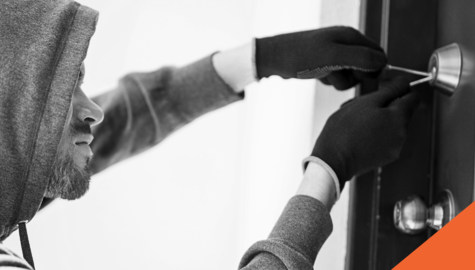Liquor Liability Insurance
Thursday, 22 April 2021
For restaurant owners, bar owners and banquet halls that sell or serve alcohol, a lawsuit resulting from liquor liability could be seriously damaging to your business’ reputation and survival. Even with current restrictions imposed, the sale and service of alcohol through take-out and delivery still has its risks. Liquor Liability Insurance is certainly a crucial way to prepare your business for such incidents, but there are several other steps you can take to reduce the risk of alcohol-related claims. As a responsible business owner, implement these strategies to mitigate the risks both now and when things re-open!
The Risks of Selling and Serving Alcohol
Let’s start by understanding the risk: your business and employees could be held legally responsible for damages or injuries caused by a customer you serve where alcohol was determined to be a contributing factor. There are high expectations and obligations for those who obtain a liquor license in Ontario and Alberta, and while you do all you can to follow the requirements, accidents can still happen.
There are plenty of potential ways this could occur, but here are just a few to consider:
Example 1: A patron was drinking at your establishment and while driving home, they were in an accident causing property damage to a home. If the overserving of alcohol is found to be a contributing cause to the accident, you could be sued for negligence and your business could be held legally responsible.
Example 2: A newer employee forgets to do an ID check and accidentally serves someone who is underage. The young customer later finds themselves in a car accident that seriously injures another person. Your business could be found negligent and held liable for the accident.
Example 3: Your bartender overserves a guest and they fall and injure themselves. If the guest then turns around and files a lawsuit against you for the incident, it could cost your business thousands in legal fees and potential payouts.
Strategies to Reduce the Risk of a Liquor Liability
Beyond liquor liability insurance (which we will explain below), there are many strategies you can implement to prevent an alcohol-related incident.
Anticipate the Crowds
At present, we realize large gatherings are not an issue, but when restrictions are lifted you can imagine that many people will want to gather for drinks and parties with friends. All the more reason to consider these steps:
- Have policies and incident reporting systems in place and follow them.
- Train your employees in company policies and regularly review best practices.
- Bring in extra servers and bartenders on busy nights (sporting events, special events) to help monitor alcohol consumption.
- Provide adequate security to enforce rules.
- For events, create a drink ticket system to help limit the number of drinks each guest consumes.
Be Prepared to Refuse Service
Across Canada each province has its own certification requirement for alcohol service, which educates your employees in identifying intoxication and knowing when to refuse service. You can’t force your patrons to make good choices, but you can provide the option for good choices:
- Make water available to encourage customers to stay hydrated.
- Consider providing non-alcoholic drinks for free or at a discounted price during special events.
- Serve food to slow the absorption of alcohol. Have specials, put out pretzels or peanuts, or other food options.
- Have a plan for denying service. Make sure your staff feel supported and adequately trained to handle this.
Card Everyone
We cannot overstate how important it is to never serve alcohol to an underage person. Serving alcohol to someone who is not of legal drinking age can result in serious fines and even loss of liquor license.
- Require ID from everyone, thus enforcing a zero-tolerance policy for underage drinking.
- Train your employees to recognize fake IDs and respond appropriately.
- Do not allow persons who are underage into alcohol areas.
Ride Services
Restaurant owners have both a legal obligation and community responsibility to avoid negligence that could result in impaired driving.
- Display phone numbers of transportation options.
- Call a taxi for a patron who shouldn’t be driving.
- Look into partnering with Lyft or Uber to see if you can offer discount rides.
- During COVID, encourage your customers to opt for delivery of alcoholic beverages rather than pick-up.
Get Liquor Liability Insurance
Even with the proper certification and strategies, it can prove difficult to eliminate every risk that your business faces. This is why restaurant owners with a liquor license should seriously consider adding Liquor Liability Insurance to their Business Owners Policy.
What is Liquor Liability Insurance?
You don’t have control over your customers’ actions, but you also don’t have to put your business in jeopardy if an injury or accident occurred and the liability fell to you. At Billyard Insurance Group, we highly recommend adding Liquor Liability Insurance to your business coverage. Liquor Liability Insurance provides coverage for bodily injury or property damage for which you or your business has been deemed legally liable as a contributor to the person’s intoxication. If you were sued and found negligent in these situations, the policy would respond in providing funds for legal fees and compensatory damages resulting from the lawsuit where you are found legally liable under the Liquor License Act or similar provincial or territorial statute regulating the sale, distribution or use of liquor.
Take it from us, we want to help you protect your business from legal and financial issues that could disrupt or jeopardize your business’ future. If you have a liquor license as a part of your business, connect with a commercial insurance broker at BIG who can properly assess your risks and provide you with comprehensive coverage specific to your industry. We encourage you to do your part to protect your customers, but also take that next step to protect yourself, your employees and your business with Liquor Liability Insurance! Contact us now for a no-obligation quote.



